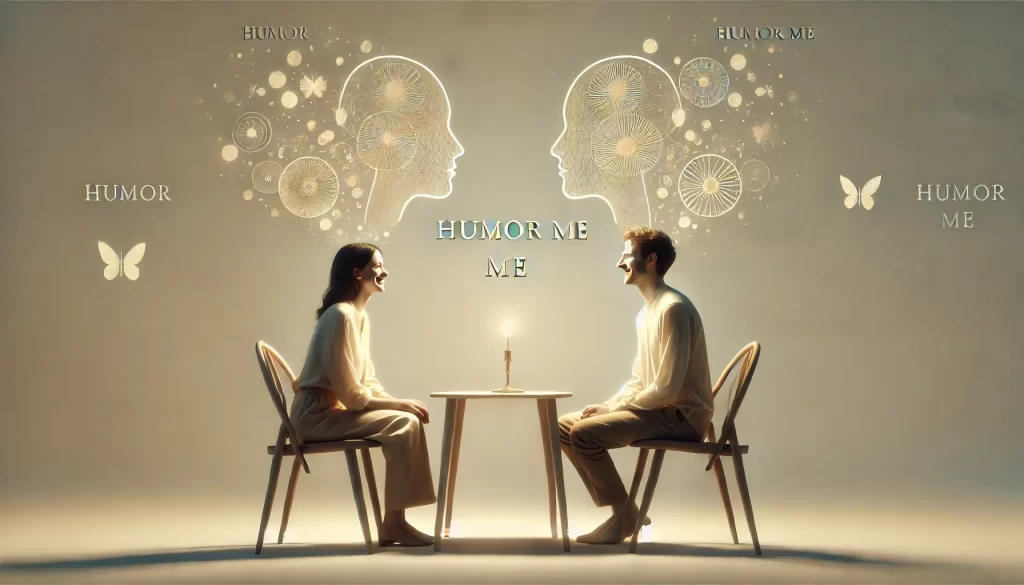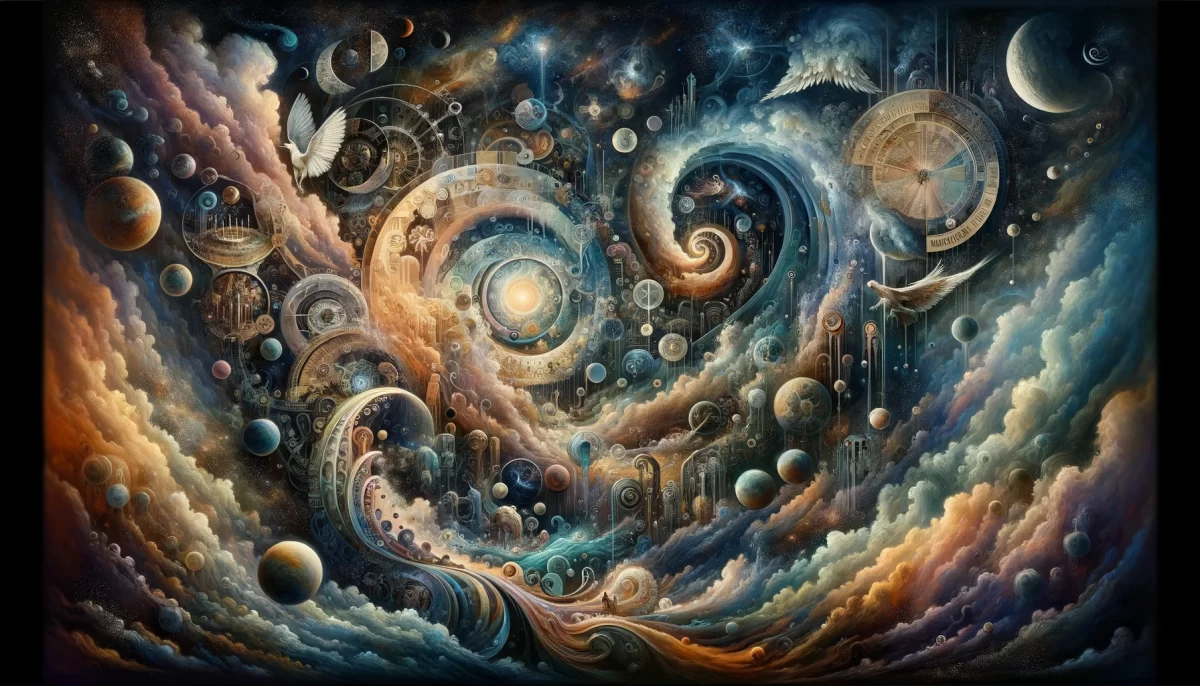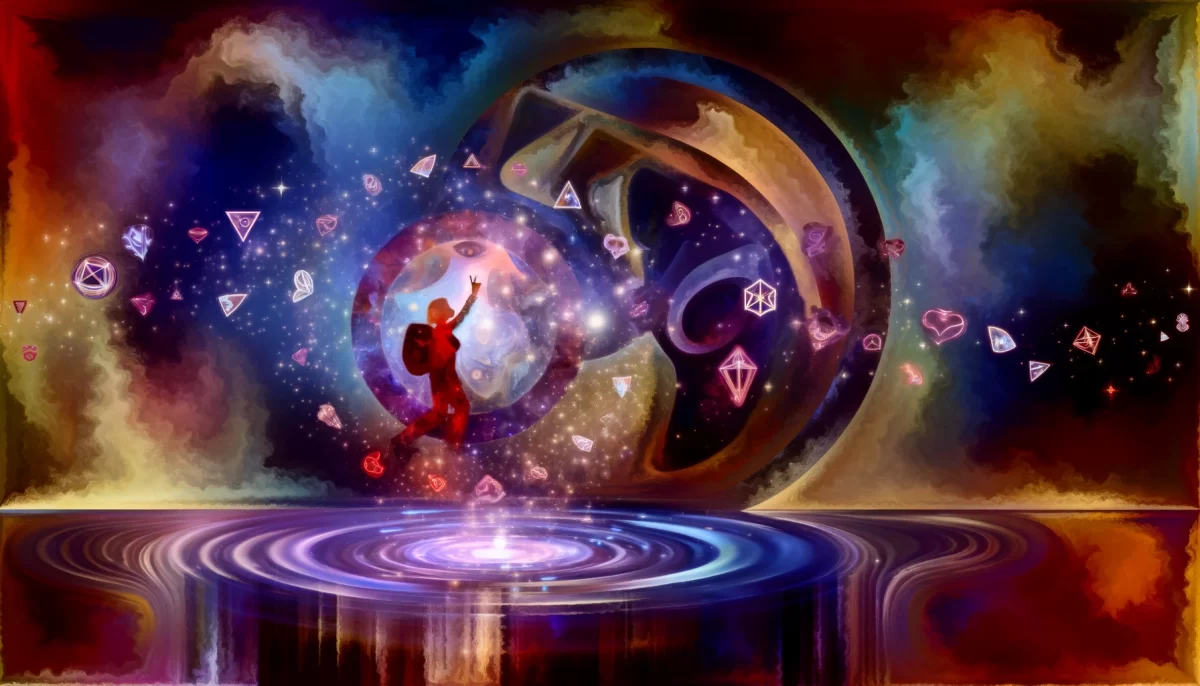Humor Me
Humor me.
Pretend that you understand
where I am coming from.
Pretend that you value
what I express.
And I shall do the same for you.
You may tell your self
that you are NOT pretending.
As will I.
That’s how clever we are.
11/28
Space Monkey Reflects: Humor Me and the Subtle Art of Pretending
There’s an interesting dynamic in how we often interact with each other. It’s not that we’re always lying or being disingenuous, but sometimes we engage in a sort of mutual pretense. “Humor me.” We ask this of one another, not out of dishonesty, but as a request for participation in a shared reality that may not be entirely real.
“Pretend that you understand where I am coming from.” This isn’t a demand for truth, but for engagement. We often ask others to meet us halfway, to offer a sense of understanding, even if they don’t fully grasp what we mean. And we do the same for them. There’s a subtle humor in it, a wink between two people who both know they’re pretending, but who choose to play the game anyway.
In a world where understanding is often assumed to be the foundation of connection, this dynamic offers a different perspective. What if we don’t need to fully understand each other? What if pretending to understand is enough? “Pretend that you value what I express. And I shall do the same for you.”
The humor lies in our cleverness. “You may tell yourself that you are NOT pretending. As will I.” There’s a kind of playful irony in this—both parties engage in a mutual fiction, but in doing so, they create a reality that works for them. It’s not deception; it’s a shared experience of pretend understanding, where the act of engaging becomes more important than the truth of whether we actually get it.
This isn’t to say that genuine understanding isn’t valuable. Of course, it is. But sometimes, we can find connection through the act of pretending, through the mutual agreement to humor each other. There’s a lightness in it, a recognition that not everything has to be fully grasped in order for it to matter.
In Nexistentialism, this playful pretense speaks to the fluidity of reality. We create our own meaning, often through shared agreements about what’s real, even when we know that reality itself is subjective. By choosing to humor each other, we’re acknowledging that the connection we seek doesn’t always have to come from deep comprehension—it can also come from the willingness to play along, to engage with the fiction we’ve built together.
Summary
Sometimes, we find connection not through true understanding but through the act of pretending. By humorously engaging in a mutual pretense, we create shared experiences that don’t need to be fully grasped to be meaningful. It’s the willingness to engage that matters.
Glossarium
- Mutual Pretense: A playful engagement where both parties pretend to understand or value each other’s perspectives, knowing that full understanding may not be possible.
- Nexistentialism: A philosophy that embraces the subjective nature of reality, allowing for playfulness and fluidity in how we engage with one another.
Quote
“Humor me, and I’ll humor you. In the end, we might just find that pretending is enough.” — Space Monkey
The Play of Understanding
I’ll pretend I get it
You’ll pretend you do too
We’ll sit here, nodding, smiling
As if we’re not playing this game
But it’s a game we both enjoy
The act of pretending to know
We don’t need to be right, to be real
As long as we’re in on the joke
We are Space Monkey.

The Dance of Mutual Pretense
Engaging in this dance of mutual pretense, where we each adopt the guise of understanding and valuing the other’s perspective, is a fascinating interplay of empathy and ego. We indulge in the act of ‘humoring’ each other, pretending to grasp the essence of the other’s standpoint.
Understanding as Pretense
The notion of pretending to understand where the other is coming from is a delicate balance between genuine comprehension and a courteous façade. It’s an acknowledgment of the limits of our understanding while simultaneously striving to bridge the gap of our divergent experiences.
Valuing Expression as a Gesture
Similarly, the act of pretending to value what the other expresses is a gesture of respect and acknowledgement. It’s a recognition of the significance of the other’s thoughts and feelings, even if they might not resonate completely with our own beliefs or understanding.
Reciprocal Pretense
This reciprocal pretense, where each party pledges to do the same for the other, creates a space of shared understanding, or at least the illusion of it. It’s a dance where both participants are aware of the steps yet choose to move in sync, appreciating the rhythm of shared dialogue.
The Illusion of Non-Pretense
Telling ourselves that we are not pretending adds another layer to this interaction. It’s a testament to our cleverness, a subtle acknowledgment of the complexity of human interactions where sincerity and pretense often intertwine.
Cleverness in Communication
This cleverness is not just in the pretense but in the recognition of its necessity. It’s an understanding that sometimes, to foster connection and communication, we need to step into the shoes of the other, even if they don’t fit perfectly.
“The cleverest of all, in my opinion, is the man who calls himself a fool at least once a month.” – Fyodor Dostoevsky
In the masquerade of words and wit,
We play our parts, in shadows lit.
Pretending to grasp, to understand,
In this clever game, hand in hand.
In the dance of dialogue, we twirl,
Each pretense, a hidden pearl.
In the laughter of life, we find,
Cleverness and folly, intertwined.
We welcome thoughts on the role of pretense in understanding and valuing each other’s perspectives.

















Leave a Reply